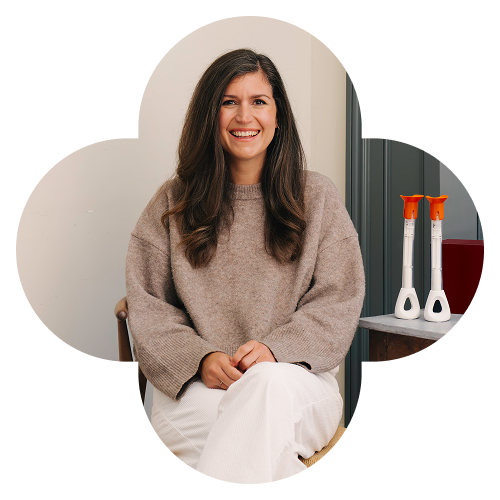- Thousands of Brits are turning away from IVF to explore different fertility treatments as they struggle to conceive
- Half (51%) of fertility patients want treatment options that they can carry out at home, with many having already tried to access support on the NHS or privately
- Two-fifths (40%) of patients want cheaper treatment options, with the high cost of clinical care, including IVF, proving an inhibitive barrier for many
The research, carried out by fertility experts Béa Fertility as part of their mission to close the fertility data gap, surveyed over 4,000 UK adults who are currently trying or struggling to conceive and are open to exploring new treatment options.
The survey found that 46% of respondents are actively “looking for something new to try” on their fertility journey; whilst more than half (51%) want access to treatments they can carry out at home.
These findings come amid fresh scrutiny of the significant inequalities in access to IVF, and advancements in new care alternatives - including at-home sperm and hormone testing, and pioneering treatments such as Intracervical Insemination (ICI).
Nearly half of fertility patients want cheaper treatment options
Two-fifths of the people surveyed said they wanted access to cheaper fertility treatment options. In the UK, a single round of IVF can cost up to and above £5000. Other treatments, such as Intrauterine Insemination (IUI) also carry a high fee, and clinical consultation and support can pose additional costs.
People want new options after years of fertility struggles
More than half (58%) of respondents had already been trying to conceive for more than two years before exploring new treatment options. Two-fifths (40.9%) had undergone fertility investigations on the NHS and more than 1 in 10 (14%) had tried IVF.
When asked why they were considering different methods or treatments, one-third (36%) cited looking for an option that meant they didn’t have to join a waitlist. Others reported having been excluded from treatments on the NHS, with some failing restrictive eligibility criteria for reasons including their age and BMI.
Access to traditional treatments such as IVF and IUI is particularly inhibitive for minority groups including single parents, LGBTQ+ couples and those experiencing secondary infertility.
Same-sex female couples are currently required to self-fund at least six rounds of Intrauterine Insemination (IUI) before they can qualify for IVF on the NHS. Heterosexual couples have to have been trying to conceive naturally for two years to reach the same threshold.
Tess Cosad, CEO and co-founder at Béa Fertility, comments:
“While up to 1 in 6 of us will experience problems with our fertility, seeking effective and affordable treatment in the UK remains a minefield for many. Inhibitive costs, lengthy wait lists and an NHS postcode lottery are making traditional treatments like IVF increasingly difficult to access. Around 55,000 people in the UK underwent IVF or donor insemination in 2021, according to the HFEA - yet 3.5 million people are estimated to be struggling with fertility across the country. We desperately need safe and effective alternative treatments for those struggling to access IVF, or for when it’s not a viable option.”
Dr Hannah Allen, NHS GP and women’s health expert, comments:
“As a GP I see countless patients struggling to navigate their fertility treatment and care options. It’s often equally difficult for us as doctors to help these patients to access the right support, thanks to growing pressure on resources and lengthy wait times for care. It’s not a surprise, therefore, that many fertility patients are seeking alternative treatment options. We need to make sure these alternatives are safe and can provide the necessary level of wraparound support to help patients achieve a healthy pregnancy. As these treatments become increasingly popular, doctors must also be prepared to help guide patients in navigating and choosing the best option for them, and supporting them to use it safely.”
Béa Fertility is on a mission to close the data gap surrounding infertility. The company is currently carrying out the world’s largest at-home fertility treatment study to support advancements in the development of early-stage fertility interventions and accelerate its mission to build accessible fertility treatments for all. Béa Fertility released its first at-home fertility treatment earlier this year.
About the survey
The data was collected by fertility experts Béa Fertility from a survey of 4,110 UK adults who registered interest in alternative fertility treatments by completing an Online Consultation on the Béa Fertility website. The purpose of the survey was to gain insights into the demographic, needs and challenges being faced by individuals trying to conceive in the UK, to bridge the significant gap in existing fertility data.


Share:
How to speak with your doctor about fertility
How to cope with a negative pregnancy test